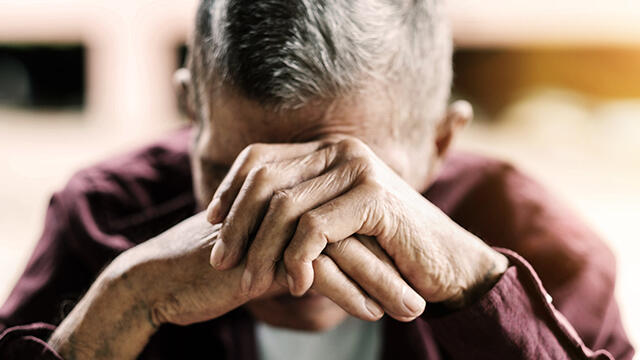Getting your Trinity Audio player ready...
New findings from a longitudinal study conducted by the Center for Research on Suicide and Mental Pain Studies at Ruppin Academic Center reveal stark differences in mental health between the general Israeli population and those directly exposed to the traumatic events of the October 7 massacre. The research highlights a significant disparity in rates of PTSD, depression and anxiety.
Two months after the war outbreak, preliminary findings showed high rates of mental health disorders among the general population, which have since declined. In November, PTSD affected 29.8% of the population, dropping to 22.8% by June. Similarly, depression rates decreased from 44.3% to 26.2%, and anxiety from 41.4% to 25.2%.
However, the study shows a pronounced gap between those directly impacted by Hamas' attack and those who were not. Among the directly affected, 38.5% are dealing with PTSD, compared to 18.3% of the unaffected population. Depression affects 44.7% of the exposed group versus 23.3% of the non-exposed.
"Our study indicates that it’s very important we don’t forget the people who are still stuck on October 7," said Prof. Yossi Levi-Belz, head of the Center for Research on Suicide and Mental Pain Studies.
"While Israeli society is returning to a reasonable mental state, not everyone is experiencing this change. A dramatic gap is emerging between the general population and those who experienced traumatic events on that Saturday," he added.
The severity of mental symptoms remains high among those directly affected, with post-traumatic symptoms showing increased intensity since November. In contrast, those not exposed to the massacre demonstrate improved mental health.
 Prof. Yossi Levi-BelzPhoto: Ofer Hajbi
Prof. Yossi Levi-BelzPhoto: Ofer HajbiProf. Levi-Belz emphasizes the importance of societal support for those still struggling. "A sense of belonging is crucial in crisis situations. As the Israeli public returns to routine, this sense of belonging falls apart for some, amplifying their struggles," he stated.
The study also notes that over 60% of Israelis report a significant decline in their peace of mind and sense of personal security, alongside concerns about the country's future stability. "The consequences of October 7 are still being felt," Levi-Belz explained, "indicating there is much work to be done to restore confidence and well-being."




